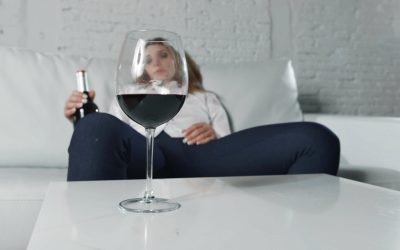But the truth is, alcohol’s alleged “sleep-enhancing” benefits may not be all they’re cracked up to be. Napping was common during recovery in one study resulting in longer does alcohol cause insomnia WASO times, decreased TST and lower SE (Currie et al., 2003a). Some individuals find that alcohol consumption can trigger hot flashes and night sweats during menopause.

Consuming alcohol and experiencing restricted sleep reduces alertness during the day. Alcohol can increase the quantity of non-REM sleep during the first half of the night, but it decreases REM sleep in the second half. If you’re turning to alcohol to help you sleep, you may be making the quality of your sleep worse. Many of us find ourselves tossing and turning at night, trying to get that elusive 7 to 8 hours of sleep experts say we need but never finding it. So while cutting out drinking will likely benefit your sleep, there may be other factors affecting your shuteye. Out of the 237 people who took part in the experiment over separate sessions, all but one of them reported they had consumed some vodka.
Healthy Bedtime Snacks To Eat Before Sleep
A great first step is to speak with a trusted loved one, a primary care doctor, or a therapist about your desire to make a change. Given all of this, I’m now confident that something like the alcohol placebo effect observed in the laboratory is occurring for me when I “day drink.” I love this realization for what it reveals not just about NA beverages but about our world. There is something mysterious and beautiful about embracing the idea that our expectations influence us in such profound ways and that we don’t need mind-altering substances to alter our minds.
Alcohol is a central nervous system depressant that causes brain activity to slow down. Alcohol has sedative effects that can induce feelings of relaxation and sleepiness, but the consumption of alcohol — especially in excess — has been linked to poor sleep quality and duration. Studies have shown that alcohol use can exacerbate the symptoms of sleep apnea. The interactions between alcohol use disorders, affective disorders, and sleep disturbance remain understudied, but it is clear that sleep problems in substance-using patients often have more than one cause. Whether chronic insomnia causes depression, anxiety, or alcoholism, or whether such disorders cause sleep problems, remains unclear. Perhaps longitudinal studies could disentangle whether sleep disturbance is a non-causal indicator of an underlying process that predisposes individuals to affective disorders and/or alcoholism, or whether insomnia has a causal role in the development of these disorders.
3. Assessment of Insomnia Disorder
This association may be secondary to subjects self-medicating their insomnia with alcohol (Kaneita et al., 2007, Ancoli-Israel and Roth, 1999, Johnson et al., 1998). In summary, the preponderance of studies report subjective and objective increase in sleep onset latency and sleep fragmentation with consequently decreased TST in actively drinking subjects with AD. Sleep apnea is a disorder characterized by abnormal breathing and temporary loss of breath during sleep.
- We used structured questionnaires, including Alcohol Use Disorder Identification Test-Korean revised version (AUDIT-KR) and the Pittsburgh Sleep Quality Index-Korean version (PSQI-K).
- But even if you thud into dreamland, there’s a good chance that too much alcohol will mean a fitful night of sleep.
- Based on your answers, we will calculate your free
Sleep Foundation Score
™
and create a personalized sleep profile that includes sleep-improving products and education curated just
for you. - Sleep researchers have performed experiments with healthy non-alcoholic subjects using alcohol doses ranging from 0.16 to 1.0 g/kg (one to three ounces), yielding breath alcohol concentrations as high as 105 mg percent (11).
To start the experiment, a researcher poured a clear liquid out of a Smirnoff vodka bottle into a pitcher and then added a cranberry juice cocktail mix. Participants were told they had about a half hour to consume up to three servings of this “cocktail.” After that, they’d be asked to perform a series of tasks, ostensibly so that the researchers could observe the effect drinking had on their abilities. Grand mean evoked potential waveforms for alcoholics at initial assessment(redlines) and
at 12 month follow-up (blue lines) Fz, FCz, Cz, CPz and Pz.
Preventing Alcohol Withdrawal Insomnia
Sleep occurs over a sustained period, typically lasting approximately 8 hours in
humans. In the absence of continued dosing, alcohol consumed prior to the onset of sleep,
therefore, will not be at a constant level throughout the sleep period. Sleep, therefore, could be expected to be affected
differently during the initial period of high alcohol levels from the subsequent elimination
phase. The presence of alcohol metabolites such https://ecosoberhouse.com/ as aldehyde need to be considered in terms
of their own possible influence on sleep mechanisms as do secondary effects of alcohol, such
as diuresis. Reducing your alcohol intake, especially in the hours leading up to your bedtime, can help you wake up well-rested and energized in the morning. In addition, since poor sleep can negatively affect one’s health, the benefits of a restful night go beyond feeling alert in the morning.
- When you’re heading to bed after a long day, a few drinks can feel like the perfect way to get some shuteye.
- There were no sex
differences or interactions between diagnosis and sex for K-complex incidence, P2
amplitude or P2 latency. - Perhaps this is because the number of female hazardous drinkers was notably lower than among male subjects and, therefore, the number of subjects with sleep disorder caused by alcohol might have been too low to yield any statistically significant result.
- The intensity of insomnia will dictate whether an individual seeks treatment with either prescription or over-the-counter medications, or self-treatment.
- Alcohol consumption can lead to worsened snoring and induce sleep apnea, which prevents oxygen from reaching the body during sleep.
- “We build stories and react to the stories that we build,” Kathryn T. Hall, the author of Placebos, and a professor at Harvard Medical School, told me.
“You might end up behaving that way, even though pharmacologically nothing has changed in your body,” Bowdring said. In addition to loss of gray matter volume and reduced connectivity, down
regulation of GABA systems could also partially explain the decrease in both delta power
and the amplitude of evoked delta responses in abstinent alcoholics. However, again, there
are other possible mechanisms that may also contribute to these effects. The movement between NREM and REM sleep involves a complex interaction between
REM-on and REM-off neuronal groups in the brainstem. The REM-on groups largely consist of
cholinergic cells in the lateral dorsal tegmentum (LDT) and the pedunculo pontine tegemental
(PPT) nuclei.
Be a sleep-smart drinker.
Alcohol-dependent patients are commonly told to focus on abstinence and sleep improvement will follow. This approach will be unacceptable to many because sleep disturbances can persist despite prolonged abstinence. Therefore, sleep disturbance during early recovery should be monitored closely with careful consideration of both behavioral and pharmacological treatment. Brower et al. reported that patients who report symptoms of insomnia do not necessarily think of themselves as having insomnia, just as alcoholics do not accept labeling (41).

Subjects who reported that they exercised 3 times or more per week were defined as regular exercisers. Alcohol can disrupt your sleep and reduce your ability to have consistent REM sleep. When consumed before bedtime, alcohol can increase your risk of experiencing insomnia and its related symptoms. Even though alcohol can make you feel sleepy, it may impact your overall quality of sleep. If you go to bed with alcohol still in your system, you may experience headaches, frequent awakenings, night sweats, more intense snoring, and nightmares. Whether you have had one or multiple drinks, it’s best to wait for your body to fully process the alcohol before heading to bed.
How Does Alcohol Withdrawal Affect Sleep?
The circadian clock may modulate sleep-wake cycle with the help of melatonin. In summary, moderate doses of alcohol may decrease the amount of REM sleep through the night. In doses mimicking heavy drinking, alcohol may initially improve sleep continuity during the first half of the night. But in the second half of the night, it may lead to fragmented sleep (more awakenings). Further, alcohol may continue to disturb sleep even after the breath alcohol concentration is undetectable. Over this past decade, knowledge in the field of sleep-related disorders has grown considerably with the evolution of sleep medicine and behavioral sleep medicine as independent sub-specialties, and improved comprehension of sleep disorders and their treatments.
A person can speak with a doctor to discuss the best way to treat and manage their condition. More severe cases of chronic insomnia may require different treatment strategies. Different forms of therapy, mindfulness, meditation, or hypnotherapy, can address insomnia symptoms. Having a beverage containing alcohol in the evening from time to time may slightly disrupt sleep, but consuming alcohol for multiple nights in a row or every night carries a greater risk of insomnia. People who drink alcohol before sleep are also more likely to experience breathing difficulties at night. They will also experience shorter periods of sleep, resulting in less restful sleep overall.
